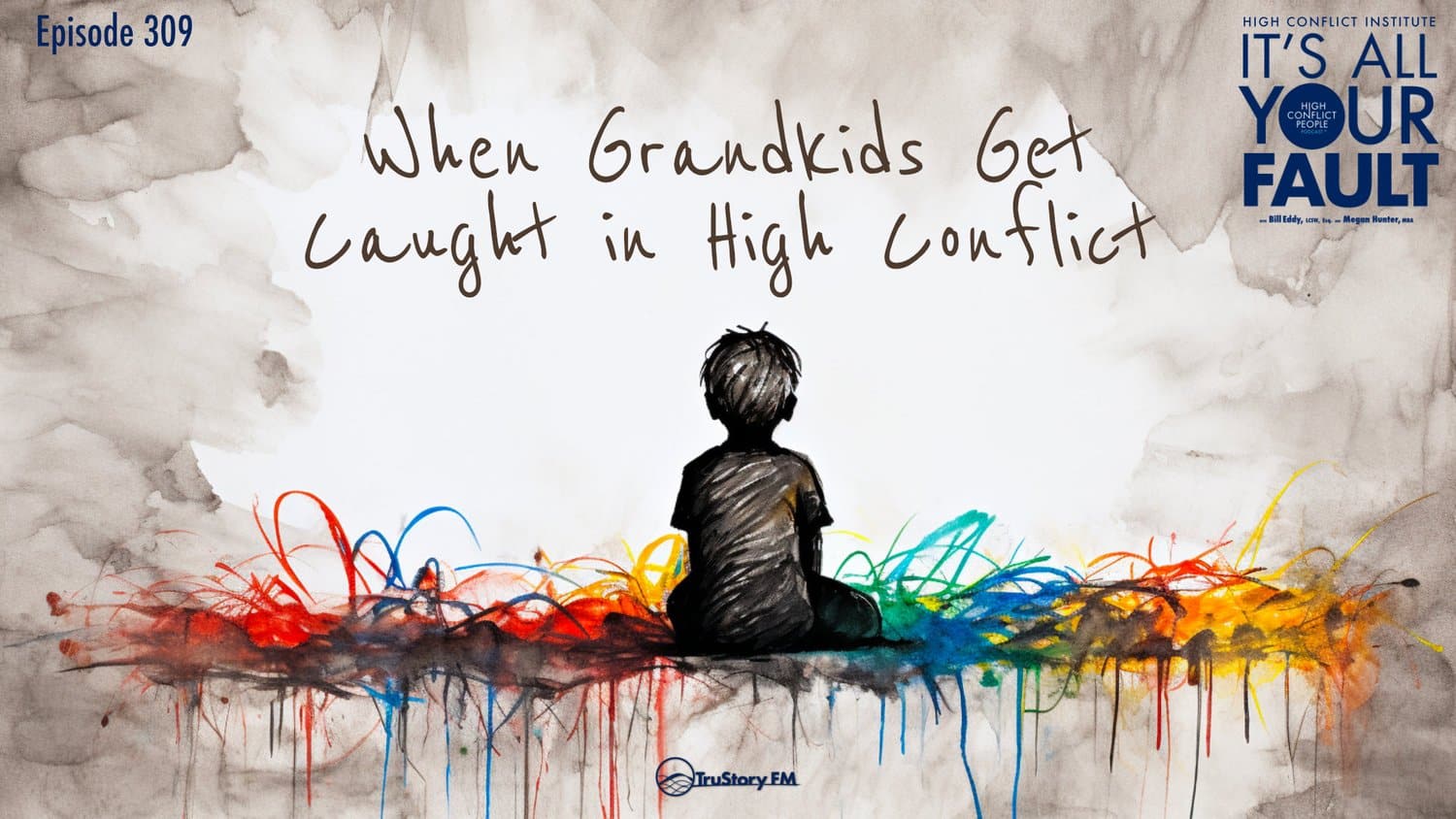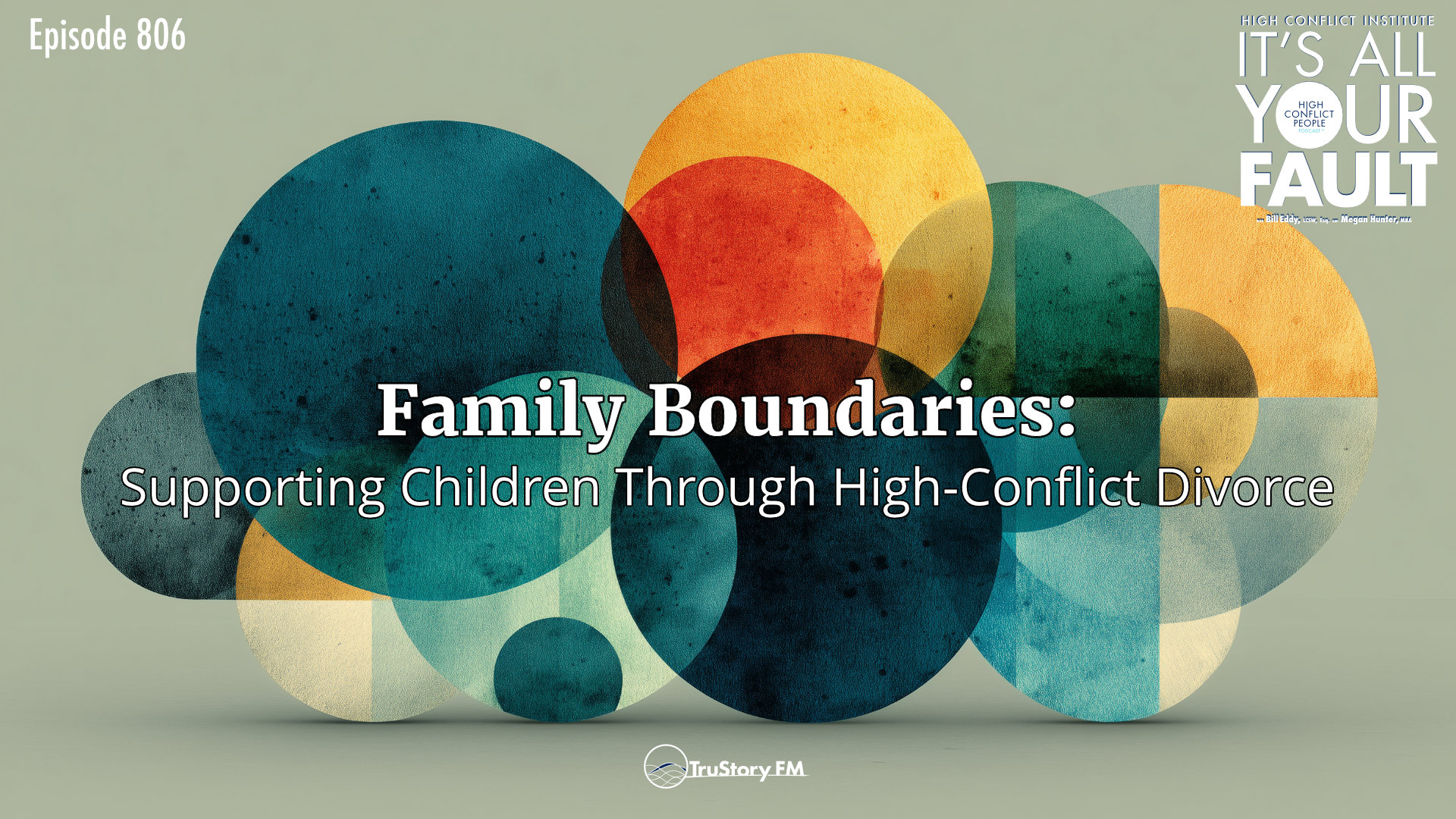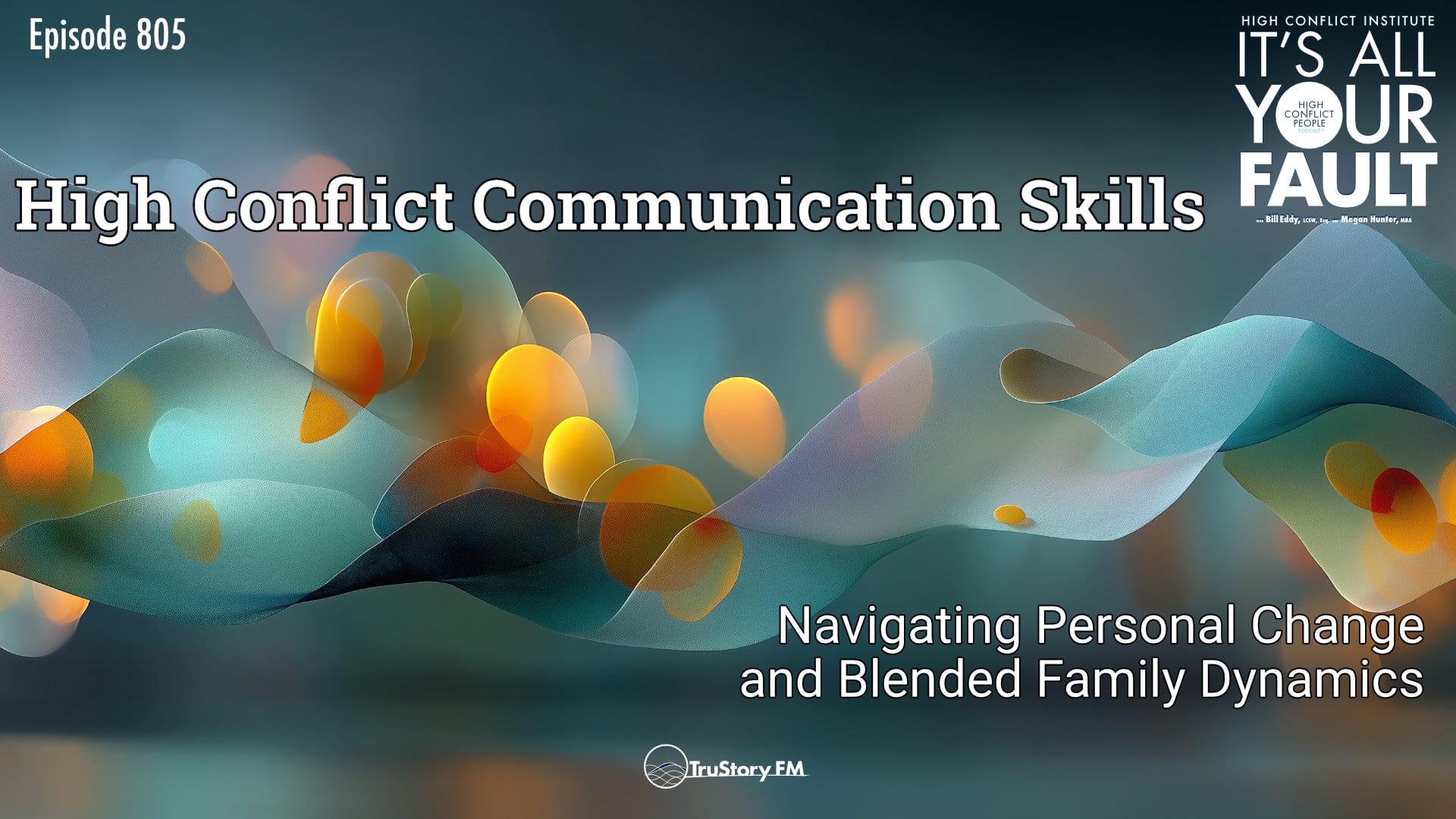In this episode of It’s All Your Fault, Bill Eddy and Megan Hunter tackle questions from grandparents struggling to support grandchildren amidst high conflict co-parents.
Protecting Kids from Raging Co-Parents
First, they advise how grandparents can help shield kids from a raging, unstable parent. Recommendations include teaching emotional regulation, self-checking, and conflict management skills. Stay positive about the high conflict parent.
Co-Parenting with a Difficult Ex Long-Term
Next is guidance for co-parenting long-term with a high conflict, accusatory ex. Bill emphasizes staying calm, balanced, and solution-focused. Praise successes. Accept the limitations on your role as a grandparent.
Getting an Expert Evaluation for Court
Then Bill explains why expert testimony is critical for custody cases with a parent with tendencies like factitious disorder or personality disorders. Experts can explain the need for detailed custody orders.
Minimizing Damage as Kids Grow Up
Finally, they discuss how to minimize damage as kids mature and become more aware of a high conflict parent’s extreme behaviors. Expose kids to reasonable role models and encourage their insights.
Key Takeaways:
- Teach kids emotional regulation and critical thinking
- Stay positive about the high conflict parent
- Get expert testimony for custody cases
- Accept your limited role as a grandparent
- Focus on providing stability
The key is accepting your limited role as a grandparent, focusing on your own behavior, and providing a stabilizing presence for grandchildren. Get support from other grandparents going through similar challenges.
Links & Other Notes:
- COURSES
- Erasing Family Documentary with Resist/Refuse Commentary from Bill Eddy, LCSW, Esq.
- BOOKS
- Don’t Alienate the Kids: Raising Resilient Children While Avoiding High-Conflict Divorce
- VIDEOS
- The Primitive Emotional Power of Alienation
- ARTICLES
- Is Your Child Alienated?
- Our website: https://highconflictinstitute.com/
- Submit a Question for Bill and Megan
- All of our books can be found in our online store or anywhere books are sold, including as e-books.
Note: We are not diagnosing anyone in our discussions, merely discussing patterns of behavior.




